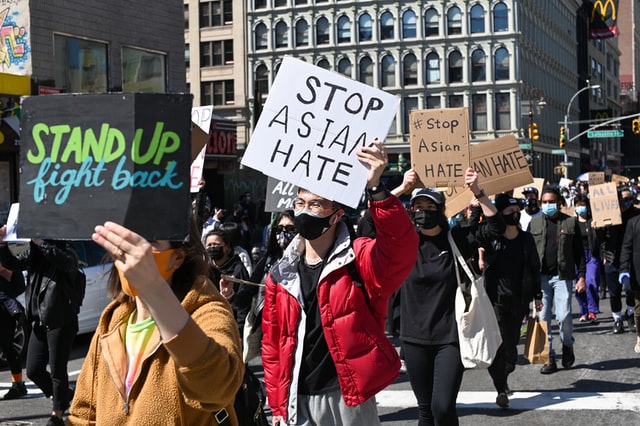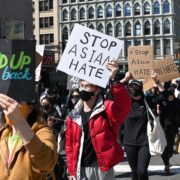
OVER 50% of Filipino adults living in the United States have experienced racism firsthand in their lives, according to a new report.
Market research company Morning Consult on Wednesday, April 7 released a study highlighting the experiences of Asian adults living in the U.S. in the wake of recent hate incidents and crimes.
The survey found that 58% of Asian adults living in the U.S. have experienced racism firsthand in their lives, while 28% said they’ve had someone say something racist or racially insensitive to or about them in the past year.
This is compared to 44% of all U.S. adults who reported experiencing a racially insensitive incident ever and 25% saying the experience was in the past year.
The poll was conducted from March 24 to 30, among 1,000 Asian adults living in the U.S. as part of the research firm’s mini-series highlighting the experiences of the community.
It also asked 2,200 U.S. adults of different groups between March 24 to 28.
The survey was conducted in English, which could have resulted in underestimates due to language barriers and other factors of accessibility.
Of the Filipino respondents, 51% said “someone has said something racist or racially insensitive to or about them ever,” while 27% said “someone has said something racist or racially insensitive to or about them in the past year.”
Morning Consult noted that “Chinese respondents were more likely to say they’ve experienced racism than Filipino or Indian adults,” with 63% of them saying “someone has said something racist or racially insensitive to or about them ever,” while 30% said “someone has said something racist or racially insensitive to or about in the past year.”
“Although at least 2 in 5 in those latter groups said they’ve experienced racism in their lives,” it added.
Morning Consult survey found that 53% of its Asian respondents blamed former President Donald Trump for the uptick in discrimination against the community due to his rhetoric around the coronavirus.
“As president, Trump regularly called the novel coronavirus, which originated in Wuhan, China, the ‘China virus’ or the ‘Chinese virus,’ also at times referring to it as the ‘kung flu,’” the report said.
“In labeling the novel coronavirus in this way, Trump was tapping into the same pool of racial resentment that feeds how his predominantly white base sees the country today,” it added.
According to Katie Nguyen Kalvoda, a board member on the AAPI Victory Fund, Asian Americans have “always dealt with being the other” in the U.S.
However, anti-Asian hate and racism have been on an all-time high in the country since 2020.
Trump’s rhetoric “made it permissible for others to use Asian Americans as a scapegoat,” Kalvoda said. “What people are seeing is the wide acceptance of this audacity to hate.”
Another release from Morning Consult found that 3 in 5 Asian adults say the reports of anti-Asian racism and violence have affected their mental health. Meanwhile, 35% reported their mental health getting worse during the COVID-19 pandemic.
“We know that anti-Asian racism has always been around,” said Dr. Anne Saw, an associate professor of clinical-community psychology at DePaul University and a board member for the Asian American Psychological Association. “But there is really something happening right now, in this pandemic time, that is impacting the majority of Asian Americans.”
Stop AAPI Hate, a national coalition that tracks anti-Asian American discrimination, logged 3,795 firsthand incidents of racism and discrimination in its reporting center between March 19, 2020, and Feb. 28, 2021.
Of that number, 503 incidents took place in the first two months of 2021 alone, the reporting center said. It also found that women are 2.3 times more likely to report the incidents versus men.
Morning Consult further found that 66% of Asian women said reports of anti-Asian violence and discrimination have affected their mental health, compared to 49% of Asian men.
“Gender and identity 100 percent come into play, especially in being able to talk about issues,” said Carrie Zhang, founder of the Asian Mental Health Project.







